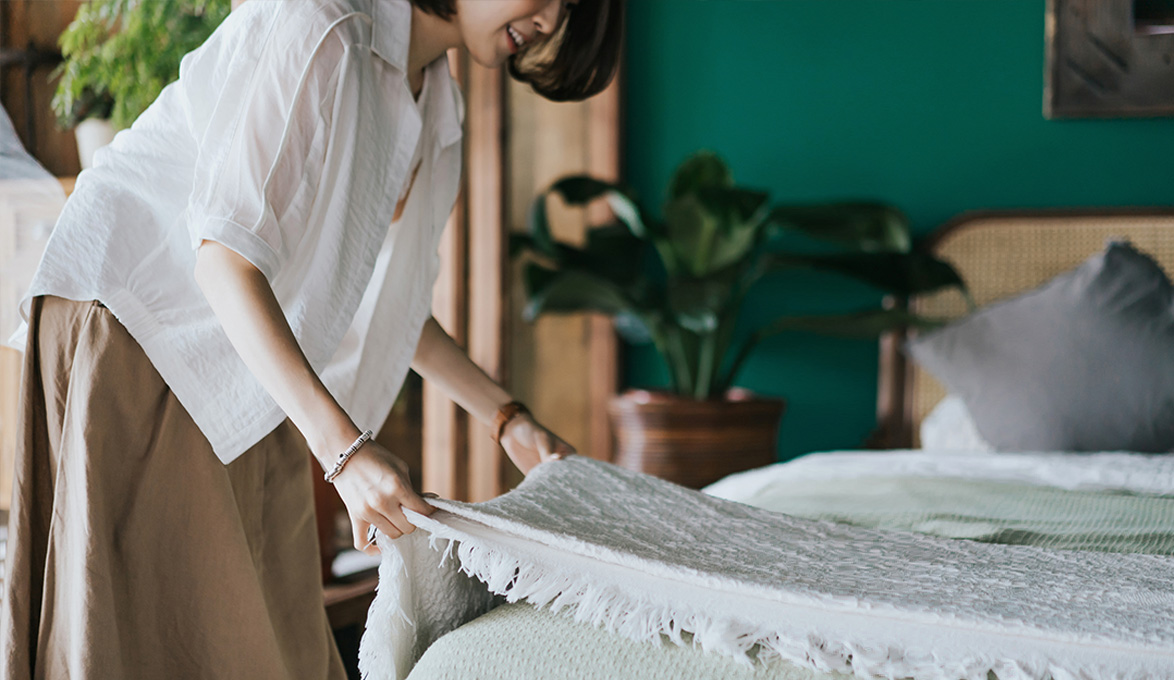How to Turn Your Home Into a Vacation Rental
6/28/2023

The weather is warming up, and popular tourist spots will soon see their annual uptick in visitors and revenue.
Could you snag some of that revenue for your family by listing your house for rent?If you live near the water or another scenic destination, you may find value in making your home, whether a primary residence or second home, a vacation rental. The extra cash could help you to pay down debt or pay off your mortgage faster.
But how do you get started? SouthState Mortgage Banker Bethany Honeycutt compiled a list of steps as well as considerations to protect yourself as the homeowner.
What is the market for vacation rentals in my town?
Does your city have large festivals, sporting events or other tourism draws that bring visitors in for a weekend? If so, you might find value in renting out a bedroom or room above the garage in your primary residence during these peak times. For those wanting to cater to larger groups of people and list your entire home, you’ll have to weigh the hassle of staying with a friend for a weekend versus the money you’ll make.Listing your vacation home, whether a beach bungalow or mountain cabin, when you’re not using it is another option. It may take more work if you plan to rent it out frequently. The revenue you bring in, however, can keep having a second home in budget.
With a quick Internet search of popular booking websites, you can assess the number of existing rentals in your city and the average rental fee.
Don’t forget to check out hotel prices in the area to help you set an accurate price for your rental.
You want your home to be an affordable and viable alternative to hotels for families, couples, and small groups interested in visiting your town. Checking out the prices of other options gives you the tools you need to create a rental price for your home that is competitive, but fair.
How should I set up my home for rent?
With the right steps, you can have your property on the rental market easily.Protect Your Asset
Even if you’re renting out a home you don’t spend much time in, you want to make sure it’s taken care of by the guests. Hiring a management service may be worth sharing a percentage of your booking fees if they will deal with tasks like drafting a rental contract for guests and listing your home online.Investing in comprehensive liability insurance is another wise move. A proper policy will protect you and your guests should something unfortunate occur during their stay. You’ll also want to designate a closet, room or another safe area to lock up valuables and personal items. A secure homeowner’s area is ideal for sentimental items like photo albums or extra supplies for future guests.
Create an Availability Calendar
Keep your rental home running smoothly with a clearly marked calendar. Staying organized about when you have guests checking in and checking out, when repair people are stopping by, and when you or a cleaning staff needs to be finished tidying up after the previous guests.Consider a Keyless Entry System
Switching out your home’s traditional door locks with keyless fixtures will make guest check-in easier – and it’s likely a home improvement project you can complete on your own. Keyless entry systems also provide another layer of security as you can change the code after visitors check out. This also prevents keys from getting lost and your guests from getting locked out during their stay.Make House Rules Clear
Your guests will appreciate a clear list of ground rules to follow. You don’t want them wondering what to do with the kitchen trash and leaving it too long in the home. As you have more guests stay, you can update your guest handbook with FAQs that previous visitors asked.Stock Up on Essentials
Remember to keep a supply of a few necessities such as bath linens, toilet paper and sheets. Providing cleaning products, garbage bags, basic kitchen supplies, and other items may encourage guests to keep your place clean.Offering the right combination of amenities will make your rental appealing. Guests will expect parking, WiFi, a washer/dryer, a smart TV and more to come standard – plus beach or camping gear depending on the location of your vacation house.




